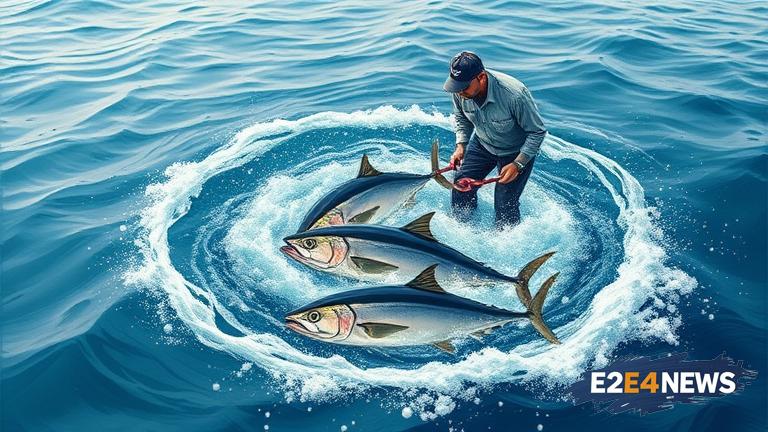The state of Sabah in Malaysia is poised to become a major player in the global tuna industry, with plans to generate RM1.8 billion in revenue and create 1,000 jobs from deep-sea fishery products. The Sabah government has identified the tuna industry as a key sector for growth and development, and is investing heavily in infrastructure and technology to support the industry. The state’s strategic location and abundant marine resources make it an ideal location for tuna fishing and processing. The industry is expected to create a significant number of jobs, both directly and indirectly, and will contribute to the state’s economic growth. The Sabah government has set a target of increasing the state’s tuna production to 100,000 metric tons per year, which will not only meet local demand but also cater to the growing demand from international markets. To achieve this target, the government is providing support to local fishermen and fishing companies, including training and funding for new fishing vessels and equipment. The state is also investing in the development of new fish processing facilities, which will enable the industry to increase its production capacity and improve the quality of its products. In addition, the government is working to promote the industry and attract foreign investment, with a focus on sustainable and responsible fishing practices. The tuna industry is expected to have a significant impact on the state’s economy, with the potential to generate billions of ringgit in revenue and create thousands of jobs. The industry will also contribute to the state’s food security, by providing a sustainable source of protein for local consumption. Furthermore, the industry will help to promote the state’s tourism sector, by providing opportunities for eco-tourism and fishing tourism. The Sabah government is committed to ensuring that the industry is developed in a sustainable and responsible manner, with a focus on protecting the state’s marine environment and conserving its fish stocks. To achieve this, the government is working with local communities and stakeholders to develop and implement sustainable fishing practices, and is also investing in research and development to improve the industry’s sustainability. The state’s tuna industry is also expected to have a positive impact on the national economy, by contributing to the country’s GDP and helping to reduce its reliance on imported fish products. Overall, the development of the tuna industry in Sabah is a significant opportunity for the state and the country, and has the potential to drive economic growth, create jobs, and promote sustainable development. The industry is expected to play a key role in the state’s economic development, and will help to position Sabah as a major player in the global tuna industry. With its abundant marine resources, strategic location, and supportive government policies, Sabah is well-placed to become a leading producer of tuna and other deep-sea fishery products. The state’s tuna industry is expected to be a major contributor to the national economy, and will help to promote the country’s economic growth and development. In conclusion, the development of the tuna industry in Sabah is a significant opportunity for the state and the country, and has the potential to drive economic growth, create jobs, and promote sustainable development. The industry is expected to play a key role in the state’s economic development, and will help to position Sabah as a major player in the global tuna industry.





